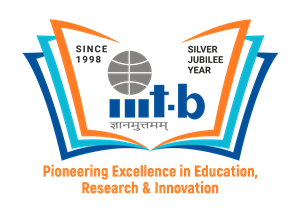Compiled by Cmde SR Sridhar (Retd)
Registrar, IIITB
There is a very interesting Sanskrit Shloka that describes the five qualities that a student must possess: –
काक चेष्टा बको ध्यानं, श्वान निद्रा तथैव च ।
अल्पहारी गृह त्यागी, विद्यार्थी पंच लक्षणं ॥
“Kak chesta bako dhyanam, shwan nidra tathaiwa cha Alpahaari grihtyaagi Vidyarthi pancha lakshnam”.
Vidyarthi – Vidhya means knowledge and arthi means one who desires knowledge. All students should possess panch lakshnam, these five characteristic features, and qualities.
- Kaka Chesta (The efforts of a Crow)
All of us in our childhood have read the story of the crow who was extremely thirsty and was flying around and looking for the water. The crow found a pitcher of water. As the crow landed itself on the rim of the pitcher and looked inside at the content he found there was water but the water was at the very bottom of the pitcher and there was no way that the crow could drink water by putting its beak inside. The crow started thinking what should be done and he comes across a brilliant idea. It started looking around and started picking up in its beak tinny pebbles and putting them inside the pitcher. Pebble by Pebble by Pebble, the crow kept working hard until the level of the water rose way up to the rim of the pitcher and the crow quenched its thirst.
Kaka chesta referred to the patience, hard work and the efforts of the crow. If we have to work on our lives and truly bring what is within outside, we have to go through some painful sharpening of kak chesta (hard work) and don’t they say “The only place where success comes before work is in the dictionary” that is because ‘S’ comes before ‘W’ alphabetically.
- Bako dhyanam (The focus of a Crane)
The intense focus of the crane can be seen when one looks at the crane standing on one leg completely focused on the water. The crane with one-pointed attention will be looking at the water as the fishes pass inside the water. The crane will allow the tiny and small fishes to swim around and not be satisfied with them and focus and wait for the big fish to come. If the crane settles with the small fish it will lose the big fish and if the crane wants the big fish it will have to pass by the small fish. Similarly, in life when we want to focus on what is important, we should allow the small things to pass by and shouldn’t be distracted by the little things. Sometimes there may be some interpersonal issues and conflicts, health-crises and financial crises. So many things keep happening in life let the small things pass by and focus on what is important.
- Shwan Nidra (The alertness of a Dog)
Shwan means dog and nidra means sleep. The shwannidra means the sleep of a dog. To be more precise the alertness of a dog. All of us have actually seen when a dog is sleeping although it will close its eyes close, the dog will be on alert. Even if there is a slight disturbance or little sound in its surroundings it will immediately open its eyes. All those who want to gain knowledge in life and pursue something meaningful in life have to practice alertness. Although we may not close our eyes but not doing nothing literally, but being doing what we will be doing in life, we shouldn’t miss out to be on alert to the world around us. There is a lot to learn from the people, objects, from situations & surrounding and we will only learn when we are alert.
- Alpahaari ( Inputs we give to our senses )
Ahaar means food and alpa means less. So literally Alpahaari means that a vidyarthi or one seeking knowledge should consume less. Now, this isn’t what is implied in this word. All our sensory organs do have abundant food to feed on, for example for our tongue we have food, for our ears, sound is the Ahaar, for our eyes visual scenes are the Ahaar.
When this verse says that a vidayrthi should be alpahaari, it means that he should be very careful of what inputs he gives to his sensory system. Whatever input we give to our senses actually go and makes a deep indelible impression on our psyche, on our inner system. In Sanskrit, it is called sanskara. Sanskara means that indelible impression that sensory inputs leave on our minds.
- Gruha Tyagi (Leave the home i.e. comfort zone).
A Vidyardhi should have an open mind to explore the world leaving his / her comfort zone. Intuitively, one should explore his/her mind and discover himself/herself, leaving the comfort zones.
Developing the above qualities is not limited to only schools or college students, but in the quest of self-realization, all of us should foster these qualities.







